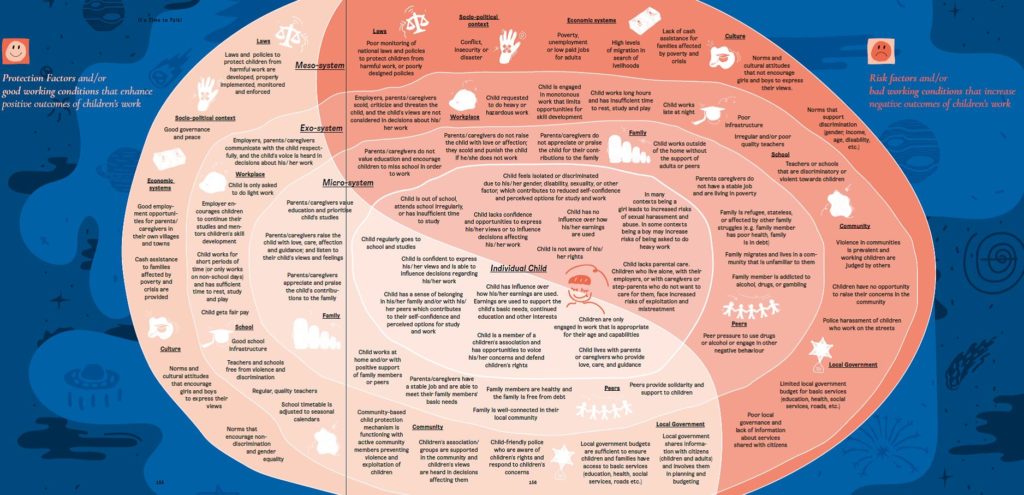Children’s working realities are very diverse and it is crucial to approach children in a wider socio-ecological framework.
To look at the broader social-ecolocical framework helps to develop and implement practices and policies that are relevant to and effective in supporting children’s well-being, growth and protection. The
type and amount of work taken on by children in different settings is influenced by: children’s gender, age, sibling order, care status, ethnicity, religion, sexuality, family income, parents’ value for education vis-à-vis children’s work, rural/urban settings, seasons, access to quality education, conflict, migration, citizenship status and other factors.
To get a deeper understanding of what theses realities look like the Time to Talk! project used the core consultation tool “Timeline”. Children drew Timelines representing their typical day. More than 1,800 Timelines have been drawn during the Time to Talk! consultations. Spaces to listen to and better understand the views, experiences and suggestions were provided. The following graphic can be found in the Time to Talk! main report from 2017, p. 155.

Employment relationship
From the timelines it was notable that a large part of working children does not have an employment relationship with a third-party-employer but rather they are working in family farms or family enterprises. In various different socio-cultural context children, boys and girls, are doing household work, agricultural tasks or animal husbandry to support their parents. Other children work as small vendors, mine workers or agricultural workers as well as brick or stone making, waste collection or domestic work for employers.
Different childhoods and everyday life
The consultations also highlighted the diverse context in which children work and how different their childhoods are. We promote the use of a socio-ecological framework to focus on the child as a social actor in the context of their family, work place, school community, and society. Many of the consulted children also emphasized their obligation to undertake household work to support their families, which in some cases was not considered work. To understand how different the everyday life of the children is and how diverse their backgrounds can be, it is crucial to find a fitting approach to promote the children’s participation, protection, well being and growth.
Promoting dialouge with governments
Key to ensuring policy and practice interventions in children’s best interests is the meaningful participation of children themselves. It is essential that governments widen spaces for dialogue among children, parents and caregivers, practitioners, and policy makers at local and national levels. Through this vommunication, we want to ensure that policies and practices are responsive to children and families’ needs and their specific socio-cultural, economic and socio-political contexts.
